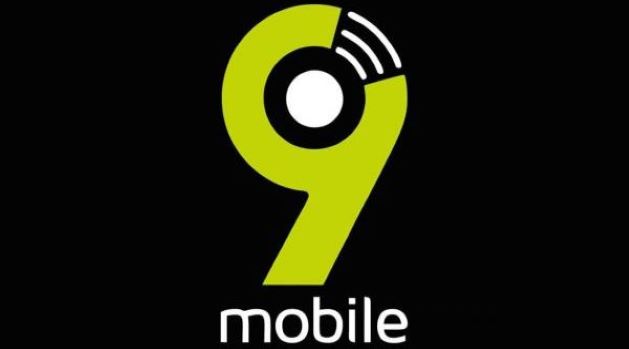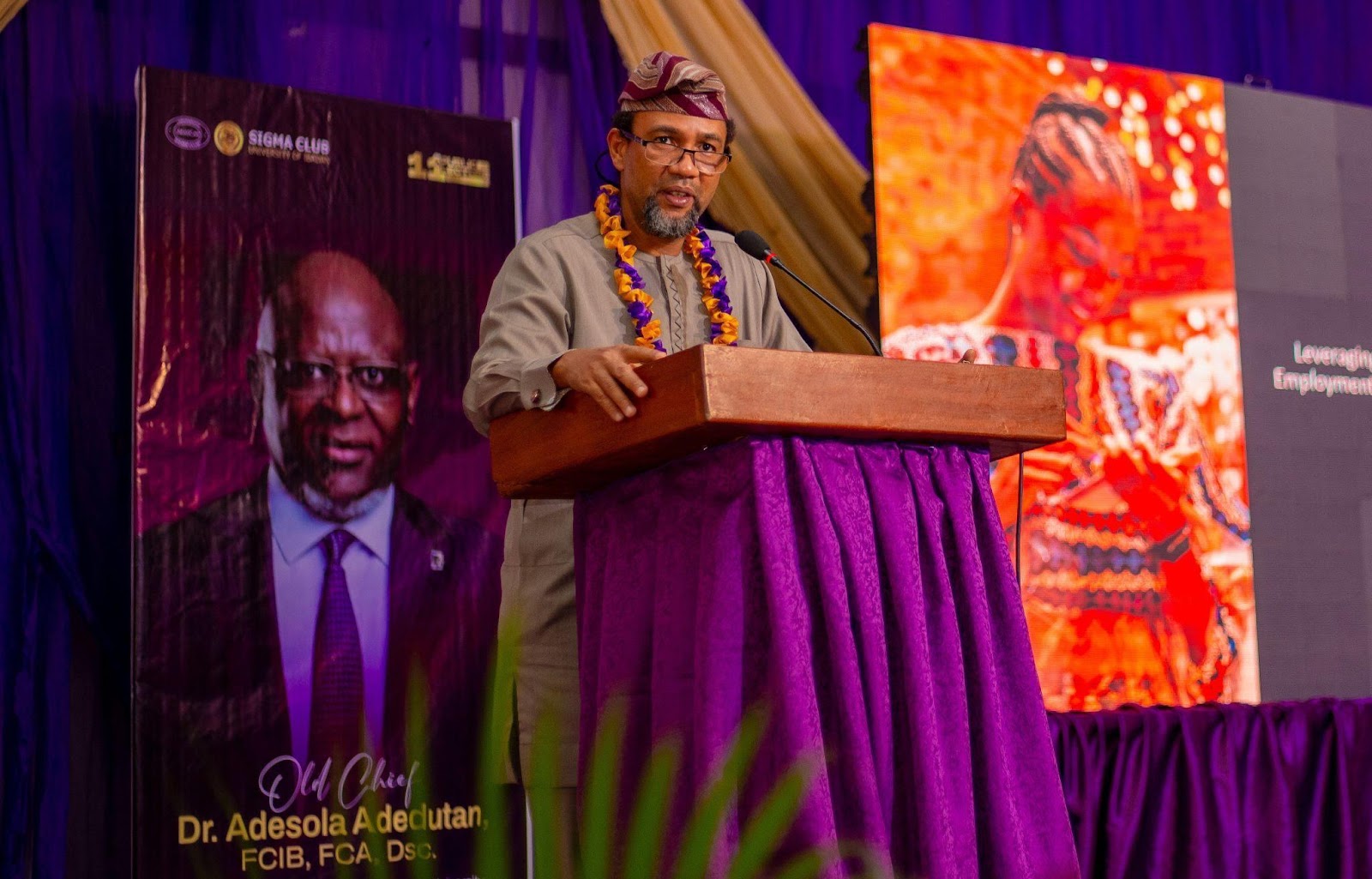Telecom
ALTON Warns of Imminent Telecom Blackout In 11 States

Association of Licensed Telecommunications Operators of Nigeria (ALTON) has expressed its concern about the shutting down of telecommunications facilities in Kogi state as a result of disputes arising from unusual taxes and levies demanded by the Kogi state government through Its Kogi State Internal Revenue Service (KIRS).

According to a statement issued yesterday by Engr. Gbenga Adebayo , ALTON chairman, and Gbolahan Awonuga, head of operations, this issue is likely to lead to a total communications blackout in the entire Kogi state, parts of Abuja the Federal Capital Territory and possible impact on service availability in some parts of the following States: Nassarawa, Benue, Enugu, Anambra, Edo, Ondo, Ekiti, Kwara, Niger States.
ALTON called on President Muhammadu Buhari and the Vice President Yemi Osinbajo, who are driving the Presidential Enable Business Council on Ease of doing business in Nigeria to prevail on the Kogi state governor, Yahaya Bello to reign in on the matter to prevent a total blackout in communications services in Kogi, FCT and other nine states of the Federation which are now under threat due to what is happening to our network in Kogi State.
“This situation arises as a number of critical telecommunications sites belonging to our members have been closed and sealed up by Kogi State Government in an attempt to increase its Internally Generated Revenue (IGR) Collection.
“This action followed an ex-parte court order obtained by the KIRS over unsubstantiated allegations that our members are in default of tax payments to the state government (which is not the truth) and access to these critical telecom sites has been denied.
“As result of these actions by the state government, our members are unable to refuel power generators in these sites, a situation which has led to outage of over 70 sites including hub sites across parts of Kogi State. Now, with likely impact on Nine States surrounding Kogi (namely:- Nasarawa, Benue, Enugu, Anambra, Edo, Ondo, Ekiti, Kwara, Niger States. These are States sharing borders with Kogi State), and Abuja the FCT inclusive,” the statement said.
ALTON leaders also stressed that this indiscriminate action has the potential of further leading to a total telecommunications outage in Kogi State with neighboring states and parts of the Federal Capital Territory adversely impacted.
“To the best of our knowledge, our members have settled all statutory levies and taxes due to the Kogi State Government and have taken necessary steps to comply with local laws that govern business activities within Kogi State,” it said.
The association said some of the charges described are: Annual Right of Way (ROW) renewal, Social Services contribution, Employee Economic Development Levy, Mast site premises renewal and Fire service yearly renewal.
Others are from the Kogi State Environmental Protection Board on, which insist on; Payment of environmental levy, Failure to submit an environmental impact assessment report; Failure to register industry; Failure to submit environmental audit report every 2 years; Storage of petroleum products and radioactive materials without written permission from KSEPB; Failure to comply with setbacks to roads, power lines and rivers/streams; and Dumping of toxic or hazardous substances or hazardous substances or harmful waste without KSEPB approval.
“ALTON is worried that the action by KIRS will jeopardize communication services provided by us to security agencies such as the Nigeria Police Force, the Armed Forces in addition and to other emergency and social services in Kogi and other neighboring states. This will include affecting communication links to Bank automatic teller machines (ATM) across those states.
“The outage currently being experienced is already affecting the ability of our members to provide uninterrupted service delivery to Commercial Banks, Central Bank of Nigeria, the Nigerian National Petroleum Corporation and other critical agencies of government in the aforementioned locations.
“The Association noted that the office of the National Security Adviser to Mr. President has in the past communicated to the 36 state governments on the fact that telecommunications sites are Critical National Infrastructure (CNI). They are critical socio-economic and security infrastructure. The agency had strongly advised against sealing them as such actions would have negative implications on national security.” The statement said.
State Governments were encouraged to explore other means of resolving tax related disputes rather than sealing telecommunications sites.
ALTON said further “Our members have also made several overtures to Kogi State Internal Revenue Service KIRS in the past months in a bid to resolve the disputed issues amicably but the agency has remained adamant.
“Rather than resort to the Tax Arbitration Tribunal for intervention as is expected of a government agency, KIRS has resorted to subtle intimidation by getting the sites shutdown in a bid to coerce our members into accepting the illegal taxes and levies,” the statement added.
Telecom
Court to Decides on 9Mobile Ownership Tussle September 24

Federal High Court in Abuja has fixed September 24 to rule on several applications in the case of Abubakar Ismaila Isa, a businessman, who claims that his 43 million shares were allegedly transferred to Emerging Markets Telecommunication Services Limited, operating under the trade name 9mobile, without his consent.

The matter before Justice Mohammed Umar on Wednesday, was filed by Isa’s legal team led by Femi Atteh, SAN, in suit number FHC/ABJ/CS/1971/2024.
The plaintiff seeks an order declaring him the “beneficial owner of the 43,000,000 (forty-three million) ordinary shares held in trust for him by the 1st Defendant (Seltrix Limited) in the capital of the 3rd Defendant (Teleology Nigeria Limited).”
He accused Seltrix Limited of purportedly transferring the said shares to 9mobile without his consent, resulting in the alleged illegal change of control of 9mobile to LH Telecommunication Limited by the Corporate Affairs Commission and Nigerian Communications Commission.
Joined as defendants in the suit are Seltrix Limited, Hayatu Hassan Hadeija, Teleology Nigeria Limited, Mohammed Edewor, Emerging Markets Telecommunications Limited, CAC, NCC, LH Telecommunication Limited and General Theophilus Yakubu Danjuma (Rtd) (first to ninth defendants).
A counter-affidavit sworn to and filed on behalf of Seltrix Limited, Hadejia had described the plaintiff’s application as a reckless abuse of the court process.
He urged the court to dismiss the application and award substantial costs against the plaintiff.
He also demanded concrete evidence of any trusteeship arrangement involving him or Seltrix Limited concerning the alleged N43 million ordinary shares in the capital of the third defendant, Teleology Nigeria Limited, or any matter related to the suit.
Hadejia stated that the plaintiff’s motion, dated 27 January but filed on 28 January, was a fabrication designed to mislead the court.
At the resumed hearing, Michael Aôndoakaa, SAN, counsel for Teleology, 9mobile, and others, drew the court’s attention to his preliminary objections, asking the court to strike out the case for “being statute-barred” as it was filed out of the stipulated time required.
Telecom
MTN, 9mobile Commence Ground-breaking National Infrastructure Partnership

In a landmark move set to redefine Nigeria’s telecom landscape, MTN Nigeria Communications Plc and Emerging Markets Telecommunications Services Limited (9mobile) have officially announced the rollout of their national roaming agreement, approved by the Nigerian Communications Commission (NCC).

The three-year agreement enables 9mobile subscribers to roam seamlessly on MTN Nigeria’s expansive network, significantly extending 9mobile’s coverage and improving service quality for its customers. The partnership signals a shift toward greater industry collaboration, aligning with the NCC’s vision for a more inclusive and efficient digital ecosystem.
Beyond infrastructure sharing, the agreement drives greater operational efficiency, stronger connectivity, and an enhanced user experience. It also paves the way for deeper collaboration between the two telcos, most notably a proposed spectrum leasing deal, in which 9mobile will lease its 900MHz (5MHz) and 1800MHz (15MHz) bands to MTN for three years, further strengthening MTN’s network capacity and service quality.
“This partnership marks a bold resurgence for 9mobile,” said Obafemi Banigbe, CEO of 9Mobile. “It empowers us to meet the needs of our customers, especially youthful and enterprise users, by delivering consistent, high-quality service as we roll out city by city in the weeks ahead.”
Banigbe acknowledged the leadership of Dr. Aminu Maida, Executive Vice Chairman and the leadership of the NCC, for enabling such progressive industry collaboration, and Dr. Bosun Tijani, Honourable Minister of Communications, Innovation, and Digital Economy, for his advocacy of a resource-efficient, consumer-first telecom ecosystem.
“In today’s telecom environment, access is more strategic than ownership,” Banigbe added.
“Access to infrastructure is now more important than ownership,” Banigbe added. “Rather than duplicating networks, we’re investing in access that is commercially viable and sustainable. Network infrastructure typically accounts for 70–75% of an operator’s costs, savings here mean we can reinvest in innovation and customer experience. At 9mobile, our mantra is simple: build infrastructure where necessary, share it where possible,” he concluded”
Dr. Karl Toriola, CEO of MTN Nigeria, described the agreement as a milestone for the sector, “This collaboration underscores our commitment to industry innovation, customer-centricity, and support for the NCC’s goal of a fully connected Nigeria,” said Toriola. “It reflects our shared value philosophy, prioritizing partnerships that benefit the entire ecosystem.”
Toriola also praised Dr. Tijani’s efforts in promoting meaningful collaboration as a key driver of digital access, service quality, and nationwide inclusion.
This pioneering agreement sets a new benchmark for infrastructure sharing in Nigeria. It exemplifies how competitors can collaborate to address systemic challenges, reduce redundancies, and collectively transform the industry—ultimately delivering broader coverage, better service, and faster access to emerging technologies for Nigerian consumers.
Telecom
Karl Toriola Champions Digital Education for Employability @Sigma Club Lecture

MTN Nigeria CEO, Dr Karl Toriola delivered a strong call for digital skills adoption and curriculum reform at the 11th Public Lecture of the Sigma Club, University of Ibadan, on Thursday, July 3, 2025.

Speaking on the theme, Leveraging Technology & Digital Education for Mass Employment, Wealth Creation and Poverty Alleviation, Toriola said technology and education can drive large-scale transformation by unlocking access to both global and local job markets. He explained that digital tools enable entrepreneurship, remote work, and access to essential services, especially in underserved areas.
He pointed out several barriers: the infrastructure deficit caused by high deployment costs, poor electricity, and insecurity in rural areas; digital literacy and education gaps; gender and regional disparities; outdated or inconsistent government policies and weak public-private coordination.
Referencing a story about a high-achieving Nigerian doctor, he said, “I saw an article a few days ago about a Nigerian medical student or doctor that qualified simultaneously in [different] specializations of medicine. It’s incredible what some of our people are doing. Our youths are ready. Our systems must be ready too.”
Among his recommendations, Toriola called for expanded digital infrastructure, changes to school curricula, stronger public-private partnerships, and programs designed with gender and cultural awareness in mind. “We must make education employable,” he said. “We have to create the opportunities for students to practice what they are learning with institutions, private-sector institutions that are using those skills of the future.”
Toriola also emphasized that while automation and robotics dominate conversations about the digital economy, there is still significant opportunity in content creation, manufacturing, and agriculture. “Huge opportunities exist in Nigeria. We need to provide the environment for the Nigerian youth to thrive by driving connectivity, changing the curricula to allow our students to acquire the skills that are required in the job market of today.”
He closed with a message of encouragement, saying, “It does not matter however you start. Where you get to at the end of the day is a product of how dedicated, focused and hardworking you are. Never give up. Nigerians have an immeasurable capacity to deliver if given the right opportunities.”
Earlier, Hon. Folajimi Oyekunle, Deputy Chief of Staff to the Oyo State Governor, delivered the welcome address on behalf of Governor Seyi Makinde. He noted that the lecture’s theme was timely and aligned with the administration’s focus on innovation and inclusive development. Citing initiatives such as the Waste to Wealth program, which created 12,000 direct jobs, and the recruitment of 21,000 teachers, he highlighted efforts to improve employment outcomes in the state. He also mentioned that the state’s internally generated revenue had risen to 8.5 billion in the first quarter of 2025, compared to a pre-2019 average of 1.6 billion.
“The government so far has worked in line with all stakeholders to create an enabling environment for job creation, which gives our graduates the opportunity to be employed in government work. As a government, we continue to support and encourage wealth in the state and also to support programs like this, which in one way or the other, gives back to their school,” he said.
Other dignitaries present at the event included the Alaafin of Oyo, Oba Abimbola Owoade; Dr. Gani Adeniran, retired lecturer from the University of Ibadan’s Faculty of Veterinary Medicine, who served as Father of the Day; and Professor Gabriel Ogunmola, Chancellor of Lead City University, Ibadan.
Initiatives like MTN’s recently launched Digital Skills Academy reiterate the company’s commitment to expanding digital access and opportunity. The platform includes a career guidance tool to help users identify and pursue paths aligned with their strengths and market demand. It forms part of the MTN Foundation’s Digital Skills for Digital Jobs programme, which supports the National Digital Economy Policy and Sustainable Development Goal 4 on quality education.

 Telecom1 day ago
Telecom1 day agoMTN Nigeria Debuts Game-Changing CPaaS Platform at NextNow Forum

 Telecom2 days ago
Telecom2 days agoNCC Approves MTN, 9Mobile Roaming Collaboration Deal

 E-Financial1 day ago
E-Financial1 day agoNAICOM Issues New Licenses to SanlamAllianz Life, General Insurance

 E-Financial1 day ago
E-Financial1 day agoGTCO to Become First Nigerian Bank to List on London Stock Exchange

 E-Financial2 days ago
E-Financial2 days agoWorld Bank Approves Extra $65m for Nigeria’s SPESSE

 News1 day ago
News1 day agoAMCON Confirms ₦100Bn Sale of Ibadan DisCo Amid Legal Disputes

 E-Business1 day ago
E-Business1 day agoDomain of Deception as Attackers Deploy Spyware Under Guise of Legal Threats

 E-Financial2 days ago
E-Financial2 days agoEcobank Taps Google Cloud to Deepen Financial Inclusion




























